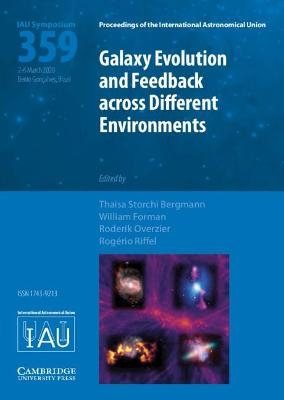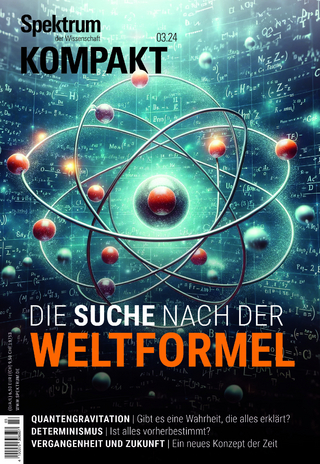
Galaxy Evolution and Feedback across Different Environments (IAU S359)
Seiten
2021
Cambridge University Press (Verlag)
978-1-108-49068-9 (ISBN)
Cambridge University Press (Verlag)
978-1-108-49068-9 (ISBN)
IAU Symposium 359 brings together the active galactic nuclei (AGN) and galaxy evolution scientific communities, to share their knowledge on these processes. They address questions relating to gas acquisition, the fueling of supermassive black holes, AGN feedback processes and the role of a galaxy's environment on its evolution.
The goal of IAU Symposium 359 on 'Galaxy Evolution and Feedback across Different Environments' (GALFEED) was to bring together the active galactic nuclei (AGN) and galaxy evolution scientific communities. The AGN phase occurs in most galaxies and critically influences their evolution, so it is important to study the two processes together and for researchers, in both topics, to learn from one another. They ask key questions such as: How do galaxies acquire their gas and how efficiently is it transformed into stars? How is the supermassive black hole in a galaxy center fuelled to become an AGN? What is the main physical mechanism that quenches star formation? How powerful are the stellar and AGN feedback processes in regulating galaxy evolution? And what is the role of the environment on galaxy evolution and AGN triggering? Astronomers engage in these discussions spanning from early galaxies to the present day.
The goal of IAU Symposium 359 on 'Galaxy Evolution and Feedback across Different Environments' (GALFEED) was to bring together the active galactic nuclei (AGN) and galaxy evolution scientific communities. The AGN phase occurs in most galaxies and critically influences their evolution, so it is important to study the two processes together and for researchers, in both topics, to learn from one another. They ask key questions such as: How do galaxies acquire their gas and how efficiently is it transformed into stars? How is the supermassive black hole in a galaxy center fuelled to become an AGN? What is the main physical mechanism that quenches star formation? How powerful are the stellar and AGN feedback processes in regulating galaxy evolution? And what is the role of the environment on galaxy evolution and AGN triggering? Astronomers engage in these discussions spanning from early galaxies to the present day.
1. Formation and Early Growth of Galaxies and SMBHs Roderik Overzier; 2. Cosmic Noon Cristina Furlanetto and Sebastian Sanchez; 3. Evolution of Galaxies and AGN in High-Density Environments from High to Low Redshifts João Steiner and William Forman; 4. Secular Evolution and Internal Processes: Mass Quenching, Stellar and AGN Feedback over Different Z's Tiago Ricci and Marina Trevisan; 5. Secular Evolution and Internal Processes: Mechanisms for Fueling Star Formation and AGN Thaisa Storchi Bergmann and Daniel Ruschel Dutra; 6. The Present-Day Universe: Spatially Resolved Studies of Stellar and Gas Content, Excitation and Metallicity Ana Chies Santos; 7: Discussion – Questions and Answers.
| Erscheinungsdatum | 14.05.2021 |
|---|---|
| Reihe/Serie | Proceedings of the International Astronomical Union Symposia and Colloquia |
| Zusatzinfo | Worked examples or Exercises |
| Verlagsort | Cambridge |
| Sprache | englisch |
| Maße | 182 x 254 mm |
| Gewicht | 980 g |
| Themenwelt | Naturwissenschaften ► Physik / Astronomie ► Astronomie / Astrophysik |
| ISBN-10 | 1-108-49068-9 / 1108490689 |
| ISBN-13 | 978-1-108-49068-9 / 9781108490689 |
| Zustand | Neuware |
| Haben Sie eine Frage zum Produkt? |
Mehr entdecken
aus dem Bereich
aus dem Bereich
die Geschichte und Erforschung unserer Galaxie
Buch | Hardcover (2023)
C.Bertelsmann (Verlag)
30,00 €
Buch (2024)
Spektrum der Wissenschaft (Verlag)
6,50 €
Wie astronomische Fotografien unsere Sicht auf die Welt verändern
Buch | Hardcover (2023)
Springer (Verlag)
39,99 €


